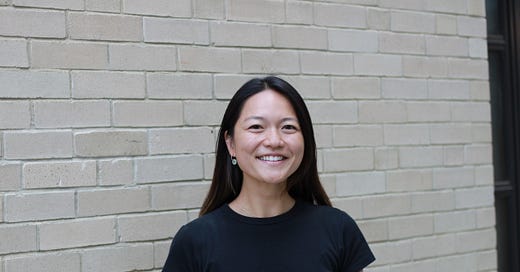How Sqool’s Cofounder Elaine Wang Pivoted to Data and Tripled Her Salary
Learning SQL accelerated Elaine's career. She shares her story along with tips and tricks on how to break into data tech.
About Elaine
Elaine Wang is a data scientist and urban planner. She co-founded Sqool, where she has taught over 100 students. Previously, she was a Product Manager at Sonder. She most recently graduated with a Masters in City Planning from MIT and now has co-founded Jane Energy, a climate-tech startup that helps homeowners turn their homes net zero.
📣 Want to learn SQL? Sign up for our 6-week program. Or check out our curriculum materials to learn at your own pace.
Tell me about your journey into data.
I found my way into data by accident—I studied architecture in school. After college, I stumbled upon an entry-level data role at Sonder, a real estate startup in San Francisco. I ended up moving across the country for this job...and the rest is history!
At first, I manually entered data like utility bills into Google Sheets. It sounds tedious, but I found it fun. I spent a ton of time Googling new formulas and tricks. Soon, I built a reputation as a spreadsheet wiz.
The real turning point came when I discovered SQL. Though I loved spreadsheets, I realized that there was a faster, better way to work in data. I taught myself SQL with help from cheat sheets, online forums, and my co-workers’ queries. Soon enough, I found myself as the startup executives’ go-to data person. Because I knew how to quickly access data, I gave them the metrics they needed for decision-making. This was game-changing.
In just three months into the job, the head of the newly-formed analytics team asked me to transition into a Data Analyst role, and I did. Because of SQL, I doubled my salary in two years. Three years later, I tripled my salary.
I eventually set up our entire Data & Analytics team with Karim, my Co-founder at Sqool. I never imagined that I’d work in data, but learning SQL opened up a new path to making a big impact, even as a new grad.
💡 “Because of SQL, I doubled my salary in two years. Three years later, I tripled my salary.”
What’s something you believed early in your journey in data science that you now think is wrong?
Before I ventured into data, I felt like an outsider. I thought that data science was meant only for super intelligent people with Phds. That’s a huge misconception.
It turns out that SQL is a lot like Google Sheets or Excel—everyday tools that most people have used before. Our Sqool students have pointed this out too. When they learn about SQL joins in class, they’re like, "Oh, it's like using index matches in Google Sheets!"
Another belief: Coming from a non-data background isn’t a weakness. It’s a strength. Imagine someone with a background in financial modeling or tax regulations. As they work through the data, they can add nuanced insights, making SQL a superpower that complements their existing expertise.
What I once saw as a complex realm has turned out to be more accessible and full of hidden potential. I truly believe that SQL is a superpower.
💡 “Coming from a non-data background isn’t a weakness. It’s a strength.”
How does the entry of ChatGPT impact how SQL is your superpower?
You can accelerate SQL with ChatGPT. It's fantastic for quick answers on how to write queries.
But, ChatGPT is not a replacement for learning SQL. SQL is not just about query writing; it's about comprehending data intricacies. ChatGPT doesn't know where your data lives. Selecting the wrong table or outdated data could derail your analysis. This part won't be resolved by ChatGPT, at least not yet.
I like to think of it like using Google Translate. Even though I know some Chinese, I rely on it for vocabulary gaps. Without my baseline knowledge, I'd be lost. Similarly, ChatGPT is a valuable tool, but it can't replace the need for a fundamental grasp of SQL to diagnose what's happening.
Key insights and strategies on breaking into data?
Start by pinpointing problems that data can solve. Prove its value through real-world use cases. People will notice your impact and offer more opportunities for you to apply your data skills.
Don't hesitate to take on new data projects, even outside your comfort zone. Go the extra mile to assist others, and they'll notice and seek your help more
Talk to other data people! That can be folks at work but also online communities on X/Twitter or Slack.I learned a ton from the data scientists and engineers that I worked with.
📣 Want to learn SQL? Sign up for our 6-week program. Or check out our curriculum materials to learn at your own pace.
Anything else you want to share?
Sqool is launching the Fall 2023 cohort for our 6-week SQL Accelerator program. Our alumni have:
Transitioned to data roles in top tech firms and startups
Increased (sometimes doubled) their salaries within a year
Launched their own businesses
Apply to the program to be a part of our success stories. I’d love to see you!




